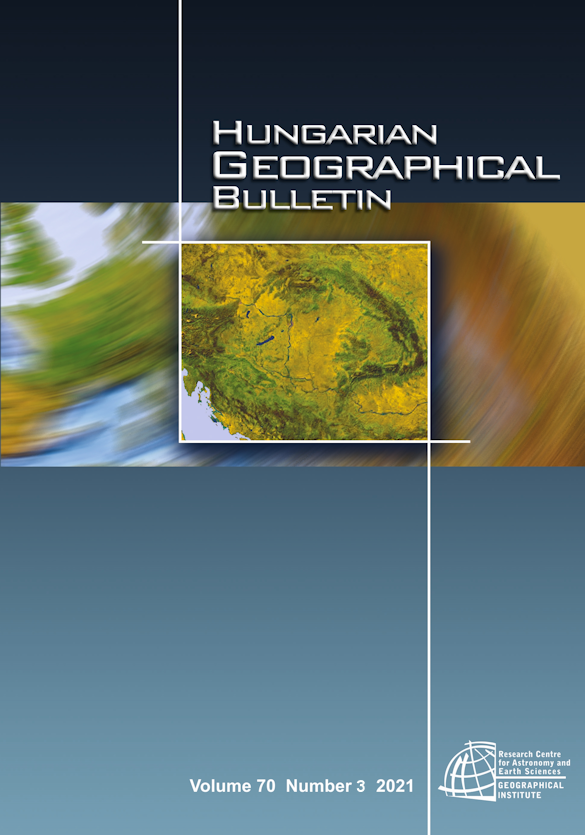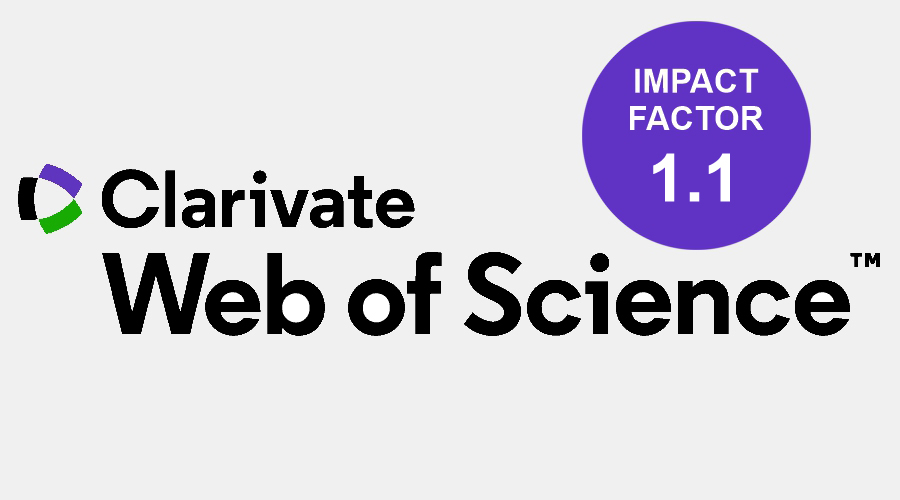Lake Balaton as an accessible tourism destination – the stakeholders' perspectives
Abstract
This paper discusses the situation in the emerging field of accessible tourism at the Lake Balaton destination. The main objective of the study was to explore the current situation of accessible tourism at Lake Balaton, focusing on the perspectives of tourism stakeholders. Various issues were reflected upon, such as: a) the “general” accessibility of the destination in terms of the current state of accessibility of the destination as well as the accessibility of information, transportation, accommodation, food and beverage services, tourist attractions, funds and know-how; b) factors that make the destination Lake Balaton competitive as an accessible destination; and c) general attitudes of tourism stakeholders towards accessible tourism. The research focus was on the destination itself, not on individual attractions or tourism service providers. In order to assess the current situation and future prospects for accessible tourism at Lake Balaton, an exploratory quantitative online survey among stakeholders was conducted between 5 September and 5 October 2020. A total of 39 stakeholders participated in the survey, including 11 local municipality stakeholders, 8 local destination management organisations, and 20 tourism service providers (accommodation, catering or attractions/sights). The results show that the Lake Balaton destination accessibility is currently at an early stage of development and tends to target groups with low accessibility needs. Among the factors of destination competitiveness for the accessible tourism market, supportive factors (e.g. accessibility, infrastructure, and the commitment of stakeholders) are ranked first, followed by resources and attractions (landscape, climate, activities, culture, history, tourism service providers, and events) and the quality factor (including value for money, safety, perception and image). Planning and management (including positioning and branding) is the lowest ranked factor even though such aspects are critical factors and foundations for the development of accessible tourism.
References
Alén, E., Domínguez, T. and Losada, N. 2012. New opportunities for the tourism market: Senior tourism and accessible tourism. In Visions for Global Tourism Industry: Creating and Sustaining Competitive Strategies. Ed.: Kasimoglu, M., IntechOpen Book Series, 139-166.
Belotti, S. 2019. "Sharing" tourism as an opportunity for territorial regeneration: the case of Iseo Lake, Italy. Hungarian Geographical Bulletin 68. (1): 79-91. https://doi.org/10.15201/hungeobull.68.1.6
Biddulph, R. and Scheyvens, R. 2018. Introducing inclusive tourism. Tourism Geographies 20. (4): 583-588. https://doi.org/10.1080/14616688.2018.1486880
Bowtell, J. 2015. Assessing the value and market attractiveness of the accessible tourism industry in Europe: a focus on major travel and leisure companies. Journal of Tourism Futures 1. (3): 203-222. https://doi.org/10.1108/JTF-03-2015-0012
Darcy, S. and Buhalis, D. 2011. Conceptualising disability: Medical, social, WHO ICF, dimensions and levels of support needs. In Accessible Tourism: Concepts and Issues. Eds.: Buhalis, D. and Darcy, S., Bristol, UK, Channel View Publications, 21-44. https://doi.org/10.21832/9781845411626-005
Darcy, S., Cameron, B. and Peggs, S. 2010. Accessible tourism and sustainability: a discussion and case study. Journal of Sustainable Tourism 18. (4): 515-537. https://doi.org/10.1080/09669581003690668
Darcy, S. and Dickson, T.J. 2009. A whole-of-life approach to tourism: The case for accessible tourism experiences. Journal of Hospitality and Tourism Management 16. (1): 32-44. https://doi.org/10.1375/jhtm.16.1.32
Darcy, S. 2010. Inherent complexity: Disability, accessible tourism and accommodation information preferences. Tourism Management 31. (6): 816-826. https://doi.org/10.1016/j.tourman.2009.08.010
Darcy, S., McKercher, B. and Schweinsberg, S. 2020. From tourism and disability to accessible tourism: a perspective article. Tourism Review 75. (1): 140-144. https://doi.org/10.1108/TR-07-2019-0323
Diekmann, A., McCabe, S. and Minnaert, L. 2012. Social tourism today: Stakeholders and supply and demand factors. In Social Tourism in Europe: Theory and Practice. Eds.: McCabe, S. Minnaert, L. and Diekmann, A., Bristol, UK, Channel View Publications, 35-48. https://doi.org/10.21832/9781845412340-009
Diekmann, A., McCabe, S. and Ferreira, C.C. 2018. Social tourism: research advances, but stasis in policy. Bridging the divide. Journal of Policy Research in Tourism, Leisure and Events 10. (3): 181-188. https://doi.org/10.1080/19407963.2018.1490859
Dolnicar, S., Yanamandram, V. and Cliff, K. 2012. The contribution of vacations to quality of life. Annals of Tourism Research 39. (1): 59-83. https://doi.org/10.1016/j.annals.2011.04.015
Egerszegi, Z. and Hegedűs, I. 2020. Good practices and experience on accessible tourism and accessibility of the Lake Balaton Region. DESTI-SMART, Interreg Europe. 10 March 2020, Mallorca. Available at https://www.interregeurope.eu/fileadmin/user_upload/tx_tevprojects/library/file_1583853513.pdf
European Network for Accessible Tourism (ENAT) 2020. Available at https://www.accessibletourism.org/
EUROSTAT 2020. Available at https://ec.europa.eu/eurostat/statistics-explained/index.php/Functional_and_activity_limitations_statistics
Fehérvölgyi, B., Hajmásy, Gy. and Madarász, E. 2019. Nagggyon Balaton… - A túlturizmus jelensége a Balaton térségében (It's a Very Balaton... - The phenomenon of 'overtourism' in the Balaton region). In Turizmus, Fogyasztás, Generációk. Tanulmánykötet. II. Nemzetközi Turizmusmarketing Konferencia. Eds.: Csapó, J., Gonda, T. and Raffay, Z., Pécs, Pécsi Tudományegyetem Közgazdaságtudományi Kar, 333-342.
Gabruč, J. and Medarić, Z. 2021. Social tourism programmes for seniors: the case study of Slovenia. In Social Tourism: Global Challenges and Approaches. Eds.: Lima, J. and Eusébio, C., Wallingford, Oxfordshire, UK, CABI Publishing, 56-71. https://doi.org/10.1079/9781789241211.0056
GFK 2015. Economic Impact on Travel Patterns of Accessible Tourism in Europe - Final Report. GFK, Surrey, UK, University of Surrey, The Neumann Consulting and PRO Solutions.
Gillovic, B., McIntosh, A., Darcy, S. and Cockburn-Wootten, C. 2018. Enabling the language of accessible tourism. Journal of Sustainable Tourism 26. (4): 615-630. https://doi.org/10.1080/09669582.2017.1377209
Gillovic, B. and McIntosh, A. 2020. Accessibility and inclusive tourism development: Current state and future agenda. Sustainability 12. (22): 9722. https://doi.org/10.3390/su12229722
Gondos, B. and Nárai, M. 2019. The opportunities in accessible tourism. The USV Annals of Economics and Public Administration, Stefan cel Mare University of Suceava, Romania, Faculty of Economics and Public Administration, 19. 1. 29. 48-57.
Hajmásy, Gy. 2019. Felelős turizmus, felelős döntéshozók, avagy CSR, ahogy a balatoni turizmusban érintett szereplők látják (Responsible tourism, responsible decision makers, or CSR, as look participants affected by tourism at Lake Balaton). Turizmus Bulletin 19. (1): 25-35.
Huber, D., Milne, S. and Hyde, K.F. 2018. Constraints and facilitators for senior tourism. Tourism Management Perspectives 27. 55-67. https://doi.org/10.1016/j.tmp.2018.04.003
Kastenholz, E., Eusébio, C., Figueiredo, E. and Lima, J. 2012. Accessibility as competitive advantage of a tourism destination: The case of Lousã. In Field Guide to Case Study Research in Tourism, Hospitality and Leisure. Vol. 6. Eds.: Hyde, K.F., Ryan, C. and Woodside, A.G., Emerald Publishing Ltd, 369-385. https://doi.org/10.1108/S1871-3173(2012)0000006023
Madarász, E. 2020. A COVID-19 hatása a Balaton turizmusára (Impact of COVID-19 pandemia on the tourism of Lake Balaton). Comitatus, 2020 Summer, 86-89.
McCabe, S. and Diekmann, A. 2015. The rights to tourism: reflections on social tourism and human rights. Tourism Recreation Research 40. (2): 194-204. https://doi.org/10.1080/02508281.2015.1049022
McKercher, B. and Darcy, S. 2018. Re-conceptualizing barriers to travel by people with disabilities. Tourism Management Perspectives 26. 59-66. https://doi.org/10.1016/j.tmp.2018.01.003
Michopoulou, E. and Buhalis, D. 2013. Information provision for challenging markets: The case of the accessibility requiring market in the context of tourism. Information & Management 50. (5): 229-239. https://doi.org/10.1016/j.im.2013.04.001
Michopoulou, E., Darcy, S., Ambrose, I. and Buhalis, D. 2015. Accessible tourism futures: the world we dream to live in and the opportunities we hope to have. Journal of Tourism Futures 1. (3): 179-188. https://doi.org/10.1108/JTF-08-2015-0043
Minnaert, L. 2020. Stakeholder stories: Exploring social tourism networks. Annals of Tourism Research 83. (1): 102979. https://doi.org/10.1016/j.annals.2020.102979
Morelli, L., Nocco, M., Petrillo, A. and Stolfi, S. 2006. Accessible Destination. Accessed March 2021 from site of Michigan Disability Rights Coalition (MDRC). Available at https://www.accessibletourism.org/resources/5_accessible_destination_en.pdf
Nyanjom, J., Boxall, K. and Slaven, J. 2018. Towards inclusive tourism? Stakeholder collaboration in the development of accessible tourism. Tourism Geographies 20. (4): 675-697. https://doi.org/10.1080/14616688.2018.1477828
Nzimande, N.P. and Fabula, Sz. 2020. Socially sustainable urban renewal in emerging economies: A comparison of Magdolna Quarter, Budapest, Hungary and Albert Park, Durban, South Africa. Hungarian Geographical Bulletin 69. (4): 383-400. https://doi.org/10.15201/hungeobull.69.4.4
Shaw, G. and Coles, T. 2004. Disability, holiday making and the tourism industry in the UK: a preliminary survey. Tourism Management 25. (3): 397-403. https://doi.org/10.1016/S0261-5177(03)00139-0
Scheyvens, R., and Biddulph, R. 2018. Inclusive tourism development. Tourism Geographies 20. (4): 589-609. https://doi.org/10.1080/14616688.2017.1381985
Smith, R.W. 1987. Leisure of disabled tourists: Barriers to participation. Annals of Tourism Research 14. 376-389. https://doi.org/10.1016/0160-7383(87)90109-5
Takayama Declaration on the Development of Communitiesfor- All in Asia and the Pacific 2009. ESCAP-Takayama 2009 Congress on the Creation of an Inclusive and Accessible Community in Asia and the Pacific, 24- 26 November 2009. Takayama, Japan. Appendix.
UNESCAP. Available at https://www.accessibletourism.org/resources/takayama_declaration_tope-fin_171209.pdf
Tomej, K. 2019. Sustainable transport and mobility in the Balaton region: The perspective of local tourism stakeholders. Pannon Management Review, December 2019. 25-34.
UNWTO 2016. Manual on Accessible Tourism for All: Principles, Tools and Best Practices - Module I: Accessible Tourism - Definition and Context. Madrid, UNWTO.
UNWTO 2019. Accessible Tourism Destination. Edition 2019. UN World Tourism Organisation. Available at https://webunwto.s3-eu-west-1.amazonaws.com/2019-08/basesdestinosturisticosaccesiblesenacc.pdf
Vila, T.D., Darcy, S. and González, E.A. 2015. Competing for the disability tourism market-a comparative exploration of the factors of accessible tourism competitiveness in Spain and Australia. Tourism Management 47. 261-272. https://doi.org/10.1016/j.tourman.2014.10.008
Zajadacz, A. 2015. Evolution of models of disability as a basis for further policy changes in accessible tourism. Journal of Tourism Futures 1. (3): 189-202. https://doi.org/10.1108/JTF-04-2015-0015
Zsarnoczky, M. 2017. Accessible tourism in the European Union. In 6th Central European Conference in Regional Science Conference Proceedings: Engines of Urban and Regional Development". Eds.: Borseková, K., Vanová, A. and Vitálisová, K., Banská Bystrica, SK, Faculty of Economics, Matej Bel University in Banská Bystrica, 30-39.
Copyright (c) 2021 Zorana Medarić, Judit Sulyok, Szilvia Kardos, Janja Gabruč

This work is licensed under a Creative Commons Attribution-NonCommercial-NoDerivatives 4.0 International License.






